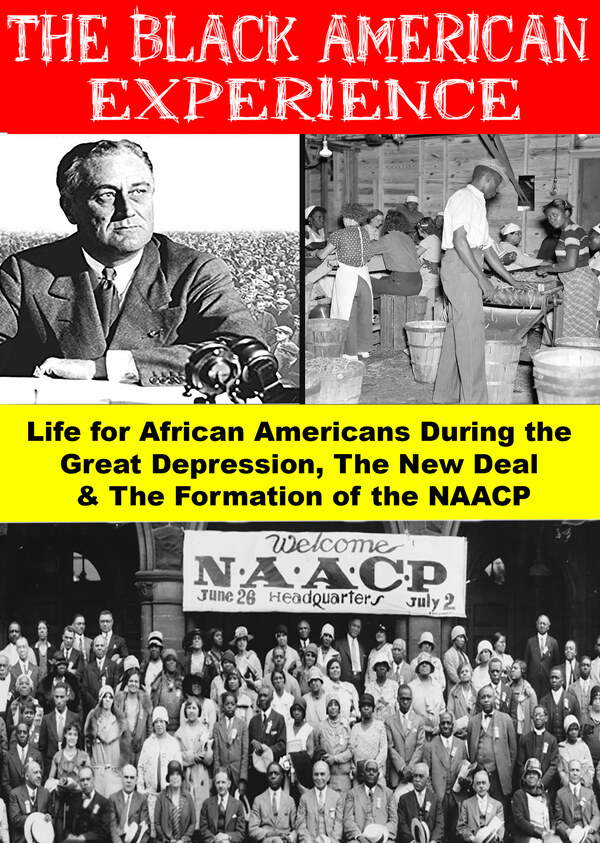The Great Depression caused financial struggles and high unemployment for African Americans. The New Deal aimed to provide relief, but racial segregation persisted. Jim Crow laws perpetuate discrimination. Despite these challenges, strides were made towards civil rights and equality with the formation of the NAACP in 1909, which advocated for equal treatment under the law for all Americans regardless of race or ethnicity. In the 1930's after years of tension with white labor unions, the NAACP cooperated with the newly formed Congress of Industrial Organizations in an effort to win jobs for black Americans. Eleanor Roosevelt, met with President Franklin D. Roosevelt to outlaw job discrimination in the armed forces, defense industries, and the agencies created by the New Deal. By the 1950s the NAACP Legal Defense and Educational Fund, headed by THurgood Marshall; later the first African American to serve in the Supreme Court, secured these goals through Brown v. Board of Education (1954), which outlawed segregation in public schools. NAACP's Washington, D.C., bureau, led by lobbyist Clarence M. Mitchell Jr., helped advance not only integration of the armed forces in 1948 Civil Rights Acts of 1957, 1964, and 1968 and the Voting Rights Act of 1965. Led by Dr. Martin Luther KIng, Ida B. Wells, W.E.B. Du Bois and scores of others, the NAACP defined courage for the black community with leadership, organization and opportunity for its members and the American people.

 Please wait...
Please wait...




